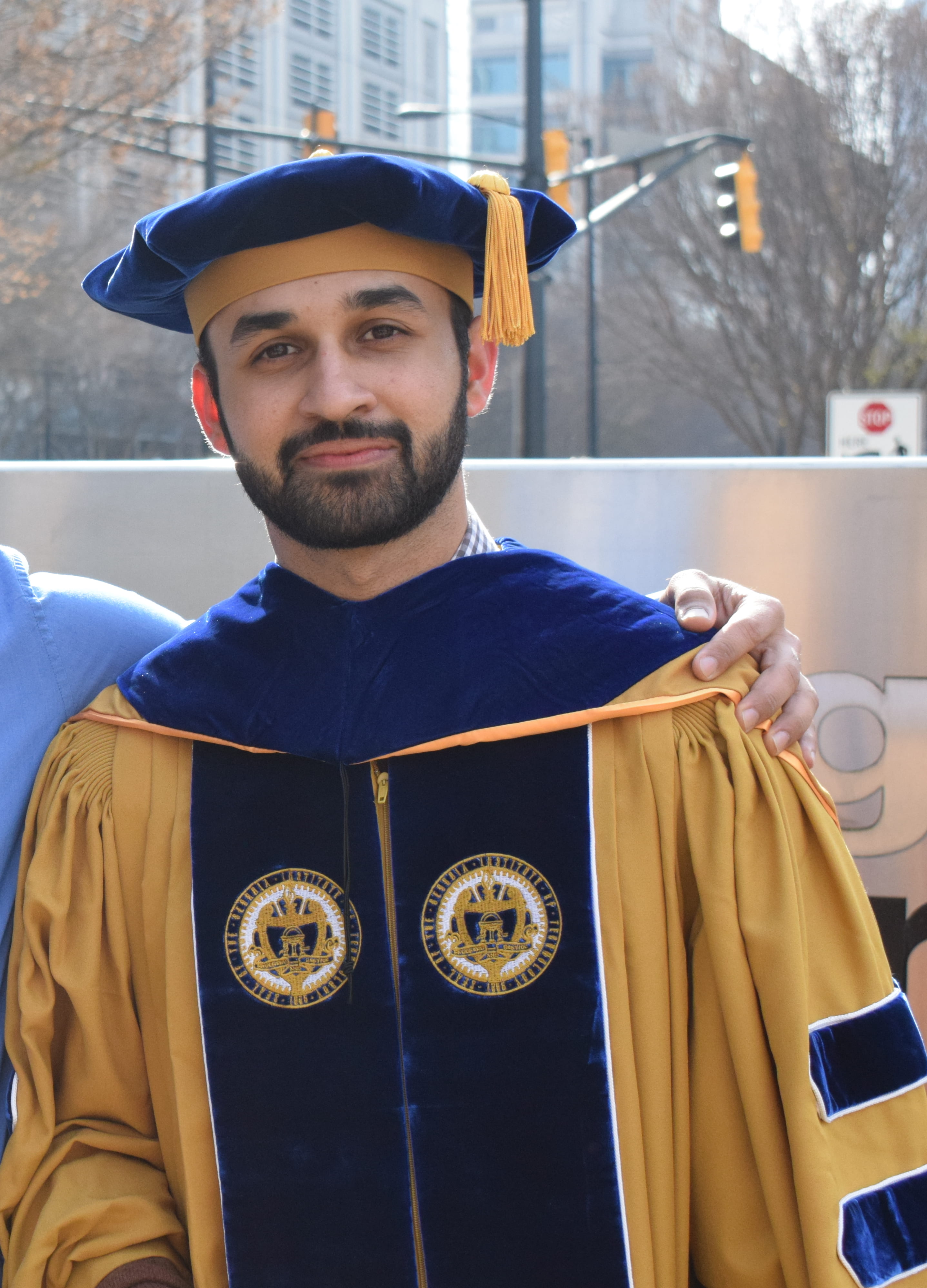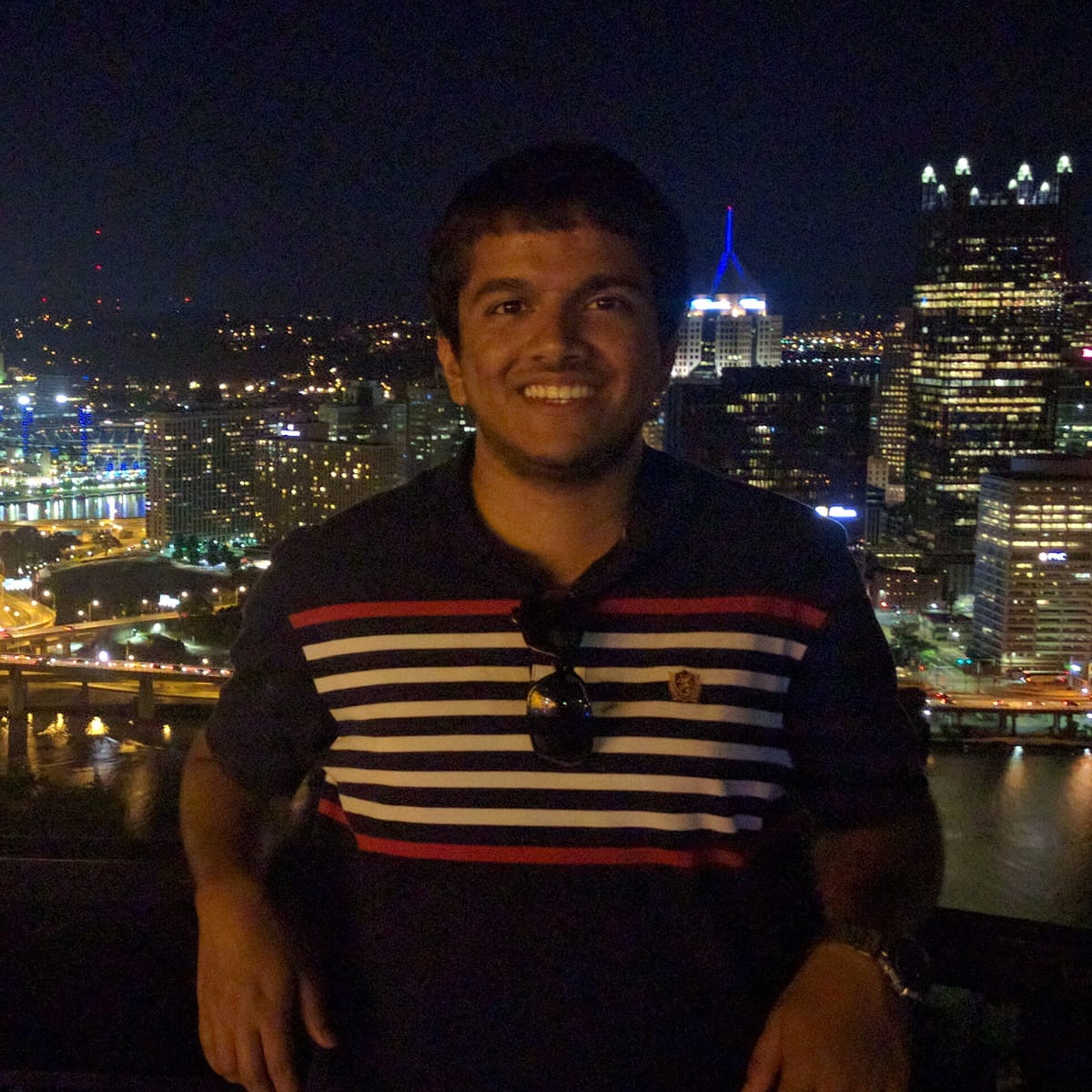Post-doctoral Researchers:
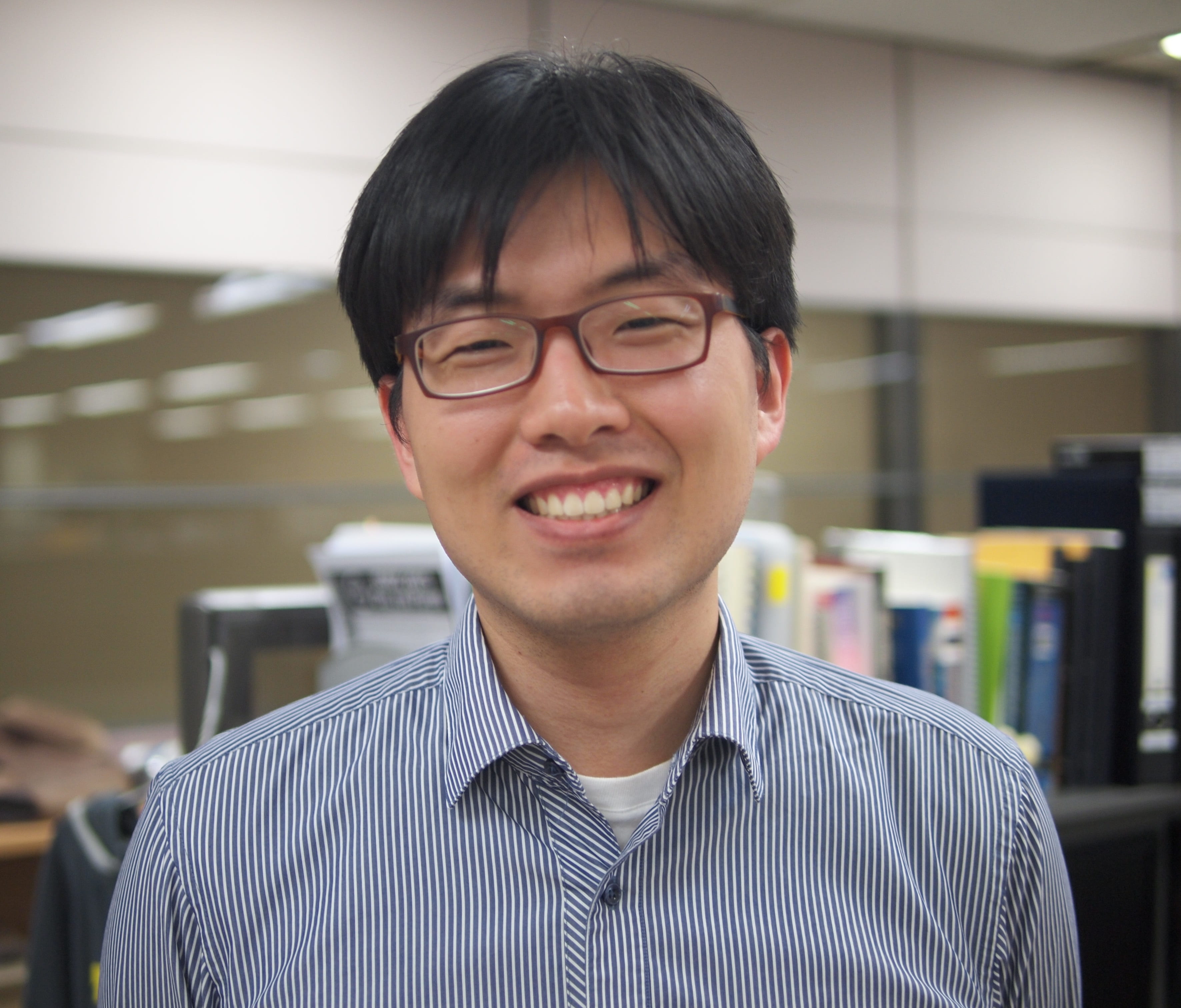 Jong-Hyeok Yoon received his B.S., M.S. and Ph.D. degrees in electrical engineering from Korea Advanced Institute of Science and Technology, Daejeon, Korea, in 2012, 2014 and 2018, respectively. In the fall of 2018, he joined the Integrated Circuits and Systems Research Laboratory (ICSRL) as a postdoctoral fellow. His research interests include the hardware implementation for the autonomous navigation of unmanned aerial vehicle (UAV) based on reinforcement learning and bio-inspired simultaneous localization and mapping (SLAM). He has received the Best Paper Award in CICC 2021 and ISLPED 2021.
Jong-Hyeok Yoon received his B.S., M.S. and Ph.D. degrees in electrical engineering from Korea Advanced Institute of Science and Technology, Daejeon, Korea, in 2012, 2014 and 2018, respectively. In the fall of 2018, he joined the Integrated Circuits and Systems Research Laboratory (ICSRL) as a postdoctoral fellow. His research interests include the hardware implementation for the autonomous navigation of unmanned aerial vehicle (UAV) based on reinforcement learning and bio-inspired simultaneous localization and mapping (SLAM). He has received the Best Paper Award in CICC 2021 and ISLPED 2021.
Website: https://sites.google.com/view/iicsl/home
Current Position: Assistant Professor at Daegu Gyeongbuk Institute of Science and Technology (DGIST), Republic of Korea.
 Kaushik Bhattacharyya received his B.Tech. in Electronics and Telecommunication Engineering from the University of Kalyani, India in the year of 2000 and his M.S. and PhD. degrees from the Department of E&ECE in IIT-Kharagpur, India in the years 2004 and 2011, respectively. He was a Post Doctoral Research in ICSRL from March, 2018 to September, 2019. He had five years of Industrial and academic experience before joining in the Integrated Circuits and Systems Research Laboratory (ICSRL). His research interests include Analog Circuit Design, Digital Circuit Design and Architectural Design of Integrated Circuits.
Kaushik Bhattacharyya received his B.Tech. in Electronics and Telecommunication Engineering from the University of Kalyani, India in the year of 2000 and his M.S. and PhD. degrees from the Department of E&ECE in IIT-Kharagpur, India in the years 2004 and 2011, respectively. He was a Post Doctoral Research in ICSRL from March, 2018 to September, 2019. He had five years of Industrial and academic experience before joining in the Integrated Circuits and Systems Research Laboratory (ICSRL). His research interests include Analog Circuit Design, Digital Circuit Design and Architectural Design of Integrated Circuits.
PhD Graduates:
 Ningyuan Cao received his B.S degree in Electric Power Engineering from Shanghai Jiaotong University, China in 2013, M.S degree in Electrical Engineering Department from Columbia University in 2015, and Ph.D. degree in Electrical and Computer Engineering from Georgia Institute of Technology in 2020. He worked as a research associate for IBM T.J. Watson in 2021. His research interests are (1) analog/mixed-signal circuit, digital architecture, and IoT system design for machine learning acceleration/distributed intelligence and (2) custom IC design automation with data-driven methods.
Ningyuan Cao received his B.S degree in Electric Power Engineering from Shanghai Jiaotong University, China in 2013, M.S degree in Electrical Engineering Department from Columbia University in 2015, and Ph.D. degree in Electrical and Computer Engineering from Georgia Institute of Technology in 2020. He worked as a research associate for IBM T.J. Watson in 2021. His research interests are (1) analog/mixed-signal circuit, digital architecture, and IoT system design for machine learning acceleration/distributed intelligence and (2) custom IC design automation with data-driven methods.
Website: http://www.ncao-nd.com
Current Position: Assistant Professor at Notre Dame University.
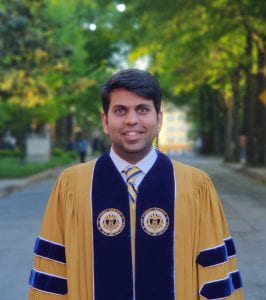 Aqeel Anwar received his B.S and M.S degrees in Electrical and Computer Engineering from University of Engineering and Technology (UET) Lahore Pakistan and Georgia Institute of Technology Atlanta, in 2012 and 2017 respectively. He worked in the industry as a Software Engineer for about a year until he moved to Al Khawarizmi Institute of Computer Sciences (KICS) Lahore as a Research Assistant. He also worked as a Machine Learning Engineer for a German based startup on self-driving cars. He is currently pursuing his PhD in Electrical and Computer Engineering from Georgia Institute of Technology. His research interest lies at the junction of machine learning and compressed sensing. He is working on hardware-centric machine learning algorithms. He received the Best Paper Award in 2018 IEEE Conference on M2VIP. He received his PhD from Georgia Tech in Jun. 2021.
Aqeel Anwar received his B.S and M.S degrees in Electrical and Computer Engineering from University of Engineering and Technology (UET) Lahore Pakistan and Georgia Institute of Technology Atlanta, in 2012 and 2017 respectively. He worked in the industry as a Software Engineer for about a year until he moved to Al Khawarizmi Institute of Computer Sciences (KICS) Lahore as a Research Assistant. He also worked as a Machine Learning Engineer for a German based startup on self-driving cars. He is currently pursuing his PhD in Electrical and Computer Engineering from Georgia Institute of Technology. His research interest lies at the junction of machine learning and compressed sensing. He is working on hardware-centric machine learning algorithms. He received the Best Paper Award in 2018 IEEE Conference on M2VIP. He received his PhD from Georgia Tech in Jun. 2021.
Website: https://sites.google.com/view/aqeel-anwar/home
Current Position: Research Engineer at Nvidia
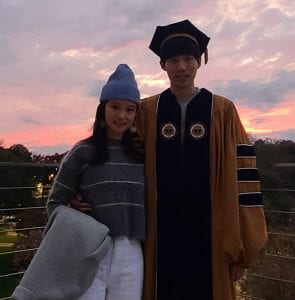 Muya Chang received his Ph.D. in Electrical and Computer Engineering (ECE) and M.S. in Computer Science. He is currently a post-doctoral fellow in Integrated Circuits and Systems Research Lab and advised by ECE Professor Arijit Raychowdhury. His research interests include energy-efficient hardware design for distributed optimizations. In 2014, he received the Exchange Program Scholarship Award to the University of Illinois at Urbana-Champaign. In 2019, he received the Qualcomm Innovation Fellowship Award, the Chih Foundation Graduate Student Research Publication Award, and the Taiwan Government Scholarship Award.
Muya Chang received his Ph.D. in Electrical and Computer Engineering (ECE) and M.S. in Computer Science. He is currently a post-doctoral fellow in Integrated Circuits and Systems Research Lab and advised by ECE Professor Arijit Raychowdhury. His research interests include energy-efficient hardware design for distributed optimizations. In 2014, he received the Exchange Program Scholarship Award to the University of Illinois at Urbana-Champaign. In 2019, he received the Qualcomm Innovation Fellowship Award, the Chih Foundation Graduate Student Research Publication Award, and the Taiwan Government Scholarship Award.
Current Position: Post-doc at Georgia Institute of Technology
Abhinav Parihar received his B.Tech. degree in Electrical Engineering from Indian Institute of Technology Delhi, India in 2012. Although an electrical engineer by training, Abhinav has always been interested in studying natural physical phenomena, and the workings of the brain. He is really fascinated by the idea that computing can arise just by using the physical laws of nature. At ICSRL, he is researching on building continuous time dynamical systems using circuits, like coupled oscillators and stochastic spiking neurons, based on new post-CMOS devices which have the capability to compute. He received his PhD from Georgia Tech in Dec. 2019.
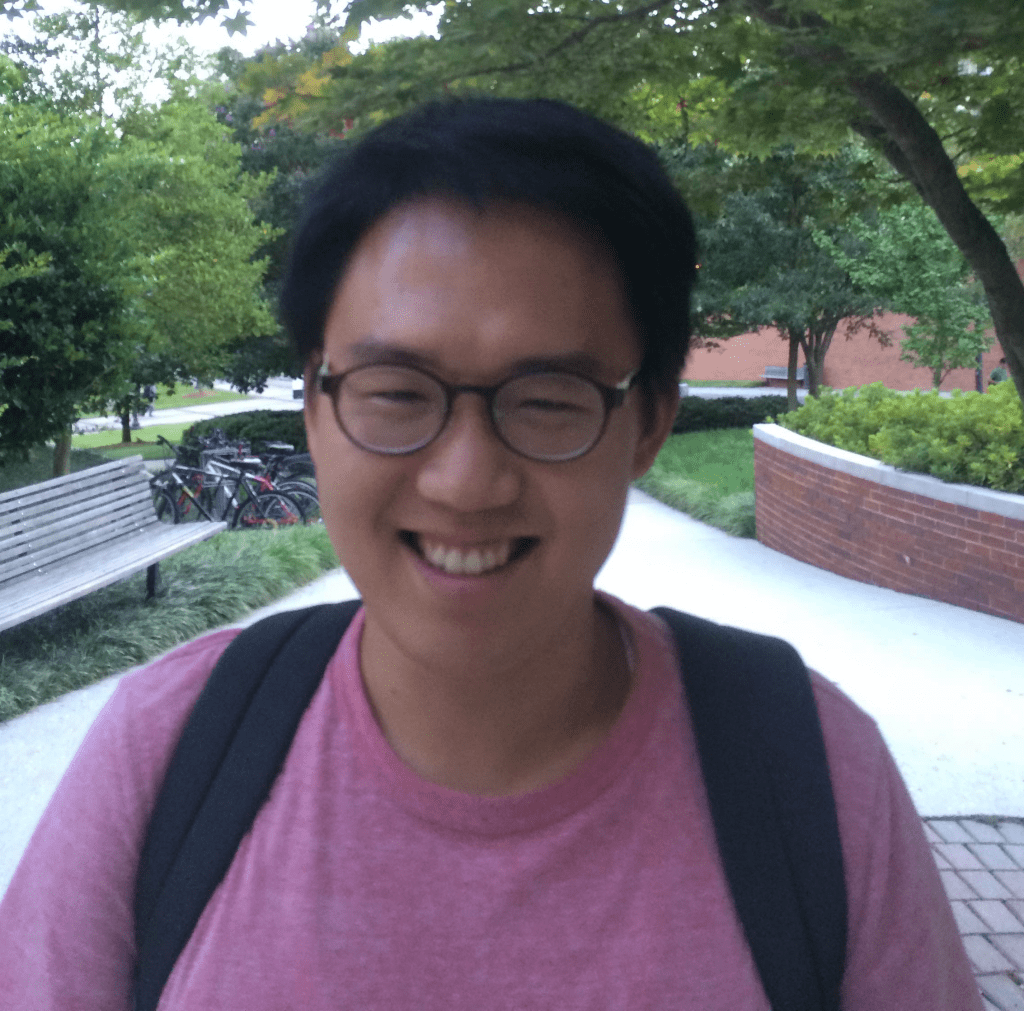
Insik Yoon received his B.S. & M.S. degrees in Electrical & Computer Engineering from Carnegie Mellon University in May 2010. After graduation, he spent five years in TLi & SK hynix as a digital circuit engineer in high speed link design. In the fall of 2015, he started his doctoral studies at the Georgia Institute of Technology and joined Integrated Circuits and Systems Research Laboratory(ICSRL). His research interests include exploration of hardware architectures for computing using emerging technologies. He received his PhD from Georgia Tech in July 2019.
Current Position: Research Engineer at Microsoft Corporation
 Anvesha Amravati received M.Tech in Microelectronics and VLSI from Indian Institute of Technology-Bombay in 2012. He worked on PVT tolerant analog and bio-medical circuits during his M.Tech. He has authored/co-authored 10 international Conference/Journal publications. He has won first prizes in national design contests organized by Analog Devices and Cadence in India. He was with Rambus chip technologies as a mixed signal design engineer from 2012 to 2014 working on multiprotocol DDR memory interface circuits. In Fall 2014, he has started his graduate studies at Georgia Institute of Technology and started working in ICSRL. His area of interest is in the area of mixed signal circuits and systems. He received his PhD from Georgia Tech in 2018.
Anvesha Amravati received M.Tech in Microelectronics and VLSI from Indian Institute of Technology-Bombay in 2012. He worked on PVT tolerant analog and bio-medical circuits during his M.Tech. He has authored/co-authored 10 international Conference/Journal publications. He has won first prizes in national design contests organized by Analog Devices and Cadence in India. He was with Rambus chip technologies as a mixed signal design engineer from 2012 to 2014 working on multiprotocol DDR memory interface circuits. In Fall 2014, he has started his graduate studies at Georgia Institute of Technology and started working in ICSRL. His area of interest is in the area of mixed signal circuits and systems. He received his PhD from Georgia Tech in 2018.
Current Position: Research Engineer at Qualcomm
Samantak Gangopadhyay received his B.Tech and M.Tech degrees in Electronics and Electrical Communication Engineering (specialization in Microelectronics and VLSI design) from the Indian Institute of Technology, Kharagpur in May, 2009. He received his PhD from Georgia Tech in 2017. From 2009 to 2013 he worked in IBM India as a Physical design R&D Engineer and worked on POWER series & Z-Mainframe microprocessors. In this role, he was responsible for the implementation of synthesizable blocks of his units and ensuring that the timing, noise, power, Electromigration, DFT & DFM specifications are met. In Fall 2013, he started his doctoral studies at the Georgia Institute of Technology and joined the Integrated Circuits and Systems Research Laboratory (ICSRL). At ICSRL, his primary focus has been adaptive power management and clock generation techniques for wide range computation in multi-core VLSI designs. His wider interest includes energy harvesting in multi-source IoTs and discrete dynamical systems through distributed architectures. Samantak has published 8 technical papers in refereed conferences, 2 journal papers and holds 2 patents. He was a finalist in Qualcomm Innovation fellowship (2015). He has also received CETL outstanding TA award (2015) and ISSCC Student travel grant award (2017).
Current Position: Analog Design Engineer at AMD
Saad Bin Nasir is an avid squash player and believes having a sedentary ‘PhD lifestyle’ since his undergrad prevented him from making it big in this cool sport. In his spare time, he likes to travel with minimum camera clicks. Saad received his B.E from the National University of Sciences and Technology (NUST), Islamabad, Pakistan, in 2010. He received his M.S. degree in 2014 and PhD degree in 2017 both from the ECE department of the Georgia Institute of Technology, Atlanta, GA, USA. His research is in the areas circuit design for power management in high performance servers and mobile devices. His wider research interests include reinforcement learning and control theory applied to robotic autonomy. He has authored/coauthored over 20 journal and conference publications. His industry experience includes 3+ years as a design engineer at Center for Advanced Research in Engineering (CARE), Islamabad and as a research intern at Intel Labs and Qualcomm. Saad is the recipient of 2013-2014 Fulbright Fellowship, 2016-2017 International Solid-State Circuits Society pre-doctoral achievement award, best student paper award at HOST 2017 and TECHCON 2016 conferences. He is a finalist of DAC Ph.D. forum 2015 and Qualcomm Innovation Fellowship 2015.
Current Position: Research Engineer at Qualcomm
MS Graduates:

Keval Prakash Kamdar
Graduation Date: May 2019
Research Topic: Performance Estimation of Large Area Nanowires.
Current Employer: Intel
Graduation Date: May 2019
Research Topic: Resistive Crossbar for Neural Network Synthesis.
Current Employer: Intel
Shipra Sharan
Graduation Date: Dec 2017
Research Topic: FPGA Implementation of RISC Rocket Core with Fine-grain Power Management.
Current Employer: Microsoft

Ashwin Chintaluri
Graduation Date: May 2016
Research Topic: Fault Models and Testing Methodologies for Embedded Spin Transfer Torque Memory Arrays.
Current Employer: Microsoft

Soham Desai
Graduation Date: May 2015
Research Topic: Hardware Implementation of Reconfigurable Restricted Boltzmann Machines for Image Recognition
Current Employer: Intel
Zhilun Li
Graduation Date: May 2014
Research Topic: Algorithm and hardware development for low power vision based systems.
Current Employer: Oracle
Undergraduate Interns:
Justin Ting
Spring 2016 – Spring 2021
University: Georgia Institute of Technology
Research Topic: Hardware Support for Reinforcement Learning for Mobile Robotics.
Current Position: PhD student at University of Michigan.
Soham Roy
Summer 2016
University: Indian Institute of technology (IIT) Delhi, India
Research Topic: Fast Lock PLLs.
Gopabandhu Hota
Summer 2018
University: Indian Institute of technology (IIT) Kharagpur, India
Research Topic: Memory-based Computing.


